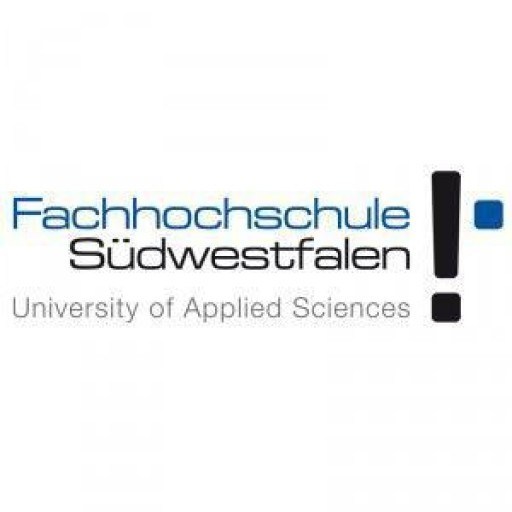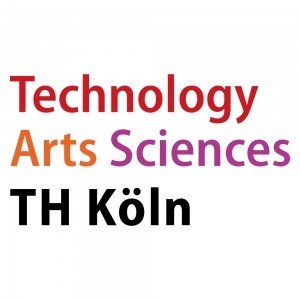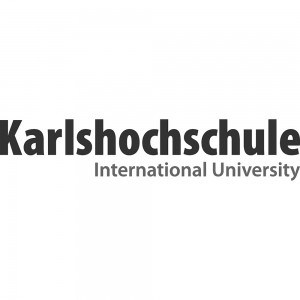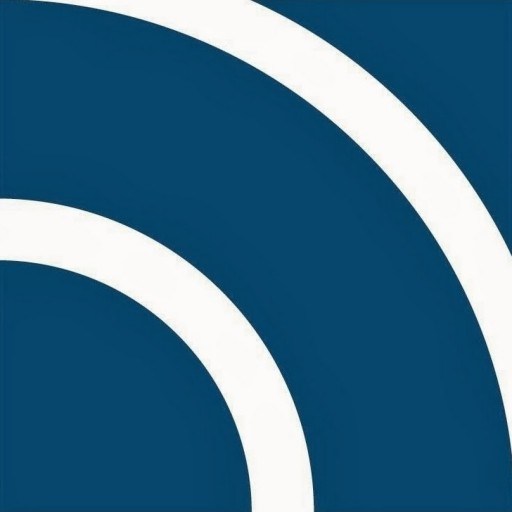Websites, interfaces, brochures, books, posters, trademarks - we are surrounded by the works of communication designers. Good communication design is not only functional, but receptive to emotional aspects as well. This is why communication designers have to find solutions to a huge variety of questions: Which features does a user interface need to make it easy to operate? What kind of package design is best suited to emphasise the qualities of a product? How can a diagram distil complex information into a more easily understandable form? Which image is most appropriate to capture the power and fascination of music on a concert poster? How can I find a creative and intelligent concept to help a business stand out from the crowd? The list goes on.
Designers of the future will not just be responsible for staging the products of others. Working in interdisciplinary teams, they will be tasked more and more with developing contents, products, and services from scratch. This is why at Rhine-Waal, we put a special emphasis on interdisciplinary cooperation and work closely with our faculty's IT experts, psychologists, natural scientists, engineers, and economists.
Our approach to teaching and learning focuses on the cutting edge. For example, it addresses future-oriented design areas like interface and motion design. Throughout your studies, you will benefit from continuous access to state-of-the-art equipment, computers, and tools used in professional media production.
The programme is taught in English to provide you with language skills that will be highly appreciated by future clients and employers who increasingly approach design from a global point of view.
Designers of the future will not just be responsible for staging the products of others. Working in interdisciplinary teams, they will be tasked more and more with developing contents, products, and services from scratch. This is why at Rhine-Waal, we put a special emphasis on interdisciplinary cooperation and work closely with our faculty's IT experts, psychologists, natural scientists, engineers, and economists.
Our approach to teaching and learning focuses on the cutting edge. For example, it addresses future-oriented design areas like interface and motion design. Throughout your studies, you will benefit from continuous access to state-of-the-art equipment, computers, and tools used in professional media production.
The programme is taught in English to provide you with language skills that will be highly appreciated by future clients and employers who increasingly approach design from a global point of view.
Educational organisation
In your first year, you will be introduced to creative, technical, and theoretical fundamentals and are offered courses in illustration and photography to advance your skills in crucial design techniques.Starting with the third semester, you will undertake a large number of practical design projects which are the heart of our degree programme. The diverse range of practices and processes you can engage with are editorial design, corporate design, integrated communication, campaign, exhibition design, information design, and web design. In many of our projects, we cooperate with external institutions and companies to provide you with opportunities to gather design experience in a real-world setting. Although the focus is on practical work, we also emphasise the history and theory of design through lectures and seminars.
Technical skills are another core element of our curriculum. Up to your fourth semester, you will develop your knowledge of interface design, online design and motion design along with your project-based learning.
After spending time abroad or undertaking a work placement in the sixth semester, you will start working on your Bachelor's thesis. Again, this will be a practical design project, this time accompanied by an academic paper.
From day one, you will also develop key skills like project management, rhetoric, presentation, and entrepreneurship to the best of your ability.
Study abroad unit(s)
In the sixth semester, students have the chance to either study abroad or do an internship (in Germany or abroad). We provide support in selecting partner universities and institutions as well as in raising funds.Internships
In the sixth semester, students have the chance to either study abroad or do an internship (in Germany or abroad). We provide support in selecting partner universities and institutions as well as in raising funds.Forms of assessment
Design projects, seminar papers, written exams, Bachelor's thesisCourse objectives
In our degree programme, we pay particular attention to advancing your conceptual and creative skills and aim to give you a head start as you embark on a career in the creative industries. By the time you graduate, you will have compiled a portfolio that showcases your strength as a well-rounded, creative and versatile designer.This way you will be well prepared for a career in media, design, and advertising agencies or as a freelance designer.
Language requirements
Please note that for this degree programme English language skills at level B2 according to the Common European Framework of Reference are required. Please be aware that all applicants' test report form numbers will be checked. We will accept the following certificates (or equivalents):IELTS: 6.0 - 6.5
TOEFL (Internet-based test): minimum 80
TOEFL (paper-based test): minimum 550
TOEFL (computer-based test): minimum 213
The TOEFL code of our university is: 6962
The only exceptions to these language requirements are a secondary school certificate or a Bachelor's degree achieved in the following countries: USA, Canada, UK, Ireland, Australia, or New Zealand. Please understand that no further exceptions can be made, even if you have achieved a Bachelor's degree taught in English in any other country.
Academic requirements
Rhine-Waal University of Applied Sciences welcomes applications from nationals of all countries. Please see our website for general admission requirements.Other requirements for Information and Communication Design BA programme include the following:
- A sufficient level of English language proficiency (CEFR level B2 or better)
- Completion of an eight-week internship before the start of the fourth semester. You can also do this internship in your home country before applying to Rhine-Waal University of Applied Sciences.
- Interest in design, music and arts
Admission to this course is primarily based on submission of a portfolio of your work. For more information, please see:
http://www.hochschule-rhein-waal.de/en/faculties/communication-and-environment/degree-programmes/portfolio-assessment.
Enrolment fees
Approx. 270 EUR per semester. This covers nominal administration fees and includes a semester ticket that allows free travel on most bus and train routes throughout the state of North Rhine-Westphalia as well as to and from Nijmegen in the Netherlands.Costs of living
The "Deutsches Studentenwerk" puts the average cost of living for students in Germany at around 700 to 800 EUR per month. This includes rent, utilities, personal expenses, and other nominal costs. For a sample breakdown of living expenses and information about financing your studies in Germany, please see our website: http://www.hochschule-rhein-waal.de/en/academics/students/costs-scholarships-and-grants.Job opportunities
International students from non-EU countries are legally permitted to work 120 full days or 240 half days per year on a student visa. No additional authorisation from German authorities is required.Rhine-Waal University of Applied Sciences often posts job advertisements for students both inside and outside the university on campus noticeboards. Some jobs at the university only require English, but most jobs in Kleve, Kamp-Lintfort, and surrounding areas will require at least conversational fluency in German. Fortunately, our Language Centre offers German courses that students can attend at no charge.
However, due to the intense workload at Rhine-Waal University of Applied Sciences, first-year students are strongly advised to dedicate their full attention to their studies. In later semesters, you will have a more open schedule and a better idea of how to balance work and studies. This is also a realistic time frame for acquiring speaking proficiency in German while studying full-time.
Funding opportunities within the university
A limited number of scholarships are available for currently enrolled students at Rhine-Waal University of Applied Sciences. The most prominent scholarship is the Germany Scholarship ("Deutschlandstipendium"). German and international students are both eligible to apply. The Germany Scholarship is a stipend of 300 EUR per month awarded each year to a limited number of students who have demonstrated excellent academic performance or exemplary social commitment to the community. Other scholarships, grants, and fellowships are available through regional and national organisations in Germany. Please see our website for details.Rhine-Waal University of Applied Sciences informs all students of important scholarship deadlines in advance so that they don't miss any potential application opportunities.
http://www.hochschule-rhein-waal.de/en/academics/students/costs-scholarships-and-grants/scholarships-and-grants
Arrival support
Rhine-Waal University of Applied Sciences is accessible from the international airports Amsterdam (AMS), Düsseldorf (DUS), Cologne/Bonn (CGN), and Weeze (NRN). The university does not offer any pick-up services, but both Kleve and Kamp-Lintfort can be reached by public transportation from any of these airports.If you anticipate any travel problems, delays, or unexpected changes to your plans, please contact our Welcome Centre so that we can support you with helpful advice.
Services and support for international students
Our Welcome Centre supports international students during their first few weeks in Germany. The Welcome Centre provides helpful advice and guidance on contracts, opening a bank account, registering your place of residence, applying for a student visa, setting up health insurance, and more.The student mentors at the Welcome Centre know first-hand what it's like adjusting to life as a student in Germany. They are also an important first contact point for students with personal and social issues, as they can direct students to the right place for their specific needs. The Welcome Centre also promotes student culture at the university by organising trips and excursions to destinations all around the region as well as a range of social events for students such as the annual "Freshtival", the university's week-long orientation festival for new students in the winter semester.
Accommodation
Rhine-Waal University of Applied Sciences strongly urges you to make accommodation arrangements before your arrival. The university does not have its own residence halls, but the "Studierendenwerk Düsseldorf" runs dormitories near campus in Kleve and Kamp-Lintfort with options for single rooms or two- and three-room flats. Prices start at around 220 EUR per month. Room availability in these dormitories is limited and subject to a waiting list, so it's important to register online for a room as soon as possible. Please note that a security deposit of three months' rent is also required.Most students choose to share a private flat off campus with fellow students. There are a number of popular online portals for finding a flat in Germany, for example: http://www.wg-gesucht.de. Rhine-Waal University of Applied Sciences also maintains its own list of available flats and rooms for students on its website. Thanks to the flexibility of the Semester Ticket, students can live in Kleve, Kamp-Lintfort, or one of the many cities and towns nearby and reach campus by public transport. For more information and helpful tips on finding a flat, please see our website: http://www.hochschule-rhein-waal.de/en/academics/prospective-students/housing.









